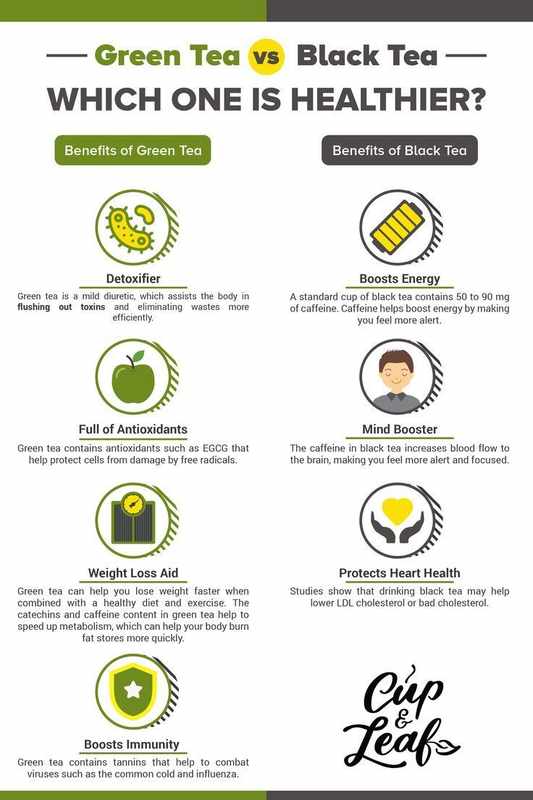As the world continues to buzz about the numerous health benefits of tea, one question often arises: is green tea really better than black tea? For centuries, these two brews have been sipped and savored around the globe, each with its own unique flavor profile and set of perceived advantages. But what does the science say?
The Benefits of Green Tea vs Black Tea: A Closer Look
In this post, we’ll delve into the fascinating world of tea to explore the key differences between green tea and black tea. From antioxidants to caffeine content, we’ll examine the advantages of each brew and help you decide which one is right for you.
A Brief History of Tea
Before we dive into the benefits, let’s take a step back in time. The origins of tea date back over 4,000 years to ancient China, where it was first consumed as a medicinal elixir. From there, tea spread throughout Asia and eventually made its way to Europe via trade routes. Today, tea is enjoyed by millions around the world, with green tea being the most widely consumed type globally.
Now that we’ve set the stage, let’s start our exploration of the benefits of green tea vs black tea by looking at their caffeine content…

To understand the benefits of green tea vs black tea, it’s essential to first consider their caffeine content. Green tea generally contains less caffeine than black tea, with an average of 25-30 milligrams per 8 oz cup. In contrast, black tea typically has around 40-70 milligrams of caffeine per 8 oz cup.
This difference in caffeine levels can have a significant impact on your body’s response to the beverage. For those sensitive to caffeine or looking for a calming brew, green tea may be a better option. On the other hand, black tea’s higher caffeine content can provide an energy boost and wakefulness, making it a popular choice among those who need a morning pick-me-up.
Antioxidants: The Powerhouses of Tea
Green tea is renowned for its high antioxidant content, which is largely attributed to the presence of catechins – a type of polyphenol. These powerful compounds can help protect your cells from damage caused by free radicals, potentially reducing the risk of chronic diseases like heart disease and cancer.
In comparison, black tea also contains antioxidants, although in slightly smaller amounts. The most notable antioxidant in black tea is theaflavin, which has been shown to have anti-inflammatory properties and may help reduce the risk of certain cancers.
Interestingly, studies have found that the fermentation process used to produce black tea can increase its antioxidant levels compared to green tea. This is because the fermentation process breaks down some of the catechins in green tea, making way for other antioxidants to emerge in black tea.
Other Key Differences
Beyond caffeine and antioxidants, there are several other key differences between green tea and black tea that can impact their benefits. For instance:
- Green tea is often brewed at a lower temperature than black tea, which can affect the release of certain nutrients.
- The manufacturing process for each type of tea can also influence its nutritional profile. Green tea, for example, is typically steamed or pan-fried to prevent oxidation, while black tea is fermented to bring out its distinctive flavor and color.
- Green tea has been shown to have a higher level of epigallocatechin gallate (EGCG), an antioxidant that may help with weight loss and anti-inflammatory effects. Black tea, on the other hand, contains more theobromine, which can help improve blood flow and lower blood pressure.
Now that we’ve explored some of the key differences between green tea and black tea, it’s time to weigh in on their benefits…
Unlock the Benefits of Green Tea for Your Business
Get expert advice on how to incorporate green tea into your daily routine and take your business to the next level.
Start chatIn our previous exploration, we’ve discussed the fascinating world of tea, comparing the benefits of green tea vs black tea. From antioxidants to caffeine content, we’ve examined the advantages of each brew and helped you decide which one is right for you.
Summarizing the Key Points
To recap, here are the key takeaways from our comparison:
- Green tea contains a higher amount of antioxidants than black tea, particularly epigallocatechin gallate (EGCG), which has been shown to have anti-inflammatory properties.
- Black tea contains more caffeine than green tea due to the fermentation process, which increases the concentration of this stimulant.
- Theine, a compound found in black tea, has been linked to improved mental alertness and focus.
- Green tea’s lower caffeine content makes it a better choice for those sensitive to caffeine or looking for a calming brew.
Final Insights
When considering the benefits of green tea vs black tea, remember that each has its unique strengths. Green tea is ideal for those seeking a low-caffeine, antioxidant-rich beverage, while black tea is perfect for those who want a boost of mental clarity and energy.
A Strong Conclusion
In conclusion, the age-old debate between green tea and black tea ultimately comes down to personal preference. Whether you’re looking for a calming, caffeine-free brew or a stimulating cup with a rich flavor profile, there’s a tea out there for everyone. So go ahead, experiment with different varieties, and find your perfect cup – because when it comes to the benefits of green tea vs black tea, the only right answer is the one that makes you happy!
Almond extract dogs: A unique combination: Ever wondered how almond extract can benefit our furry friends? In this fascinating article, discover the surprising ways that dogs and almond extract can come together to create a truly special bond. Find out what makes this unusual pairing so effective!
Thank you for visiting our online retail store – your questions answered: Congratulations on taking the first step towards finding exactly what you need! In this helpful article, we answer all your burning questions about shopping with us. From shipping to returns, get the inside scoop on how to make the most of your online shopping experience.



